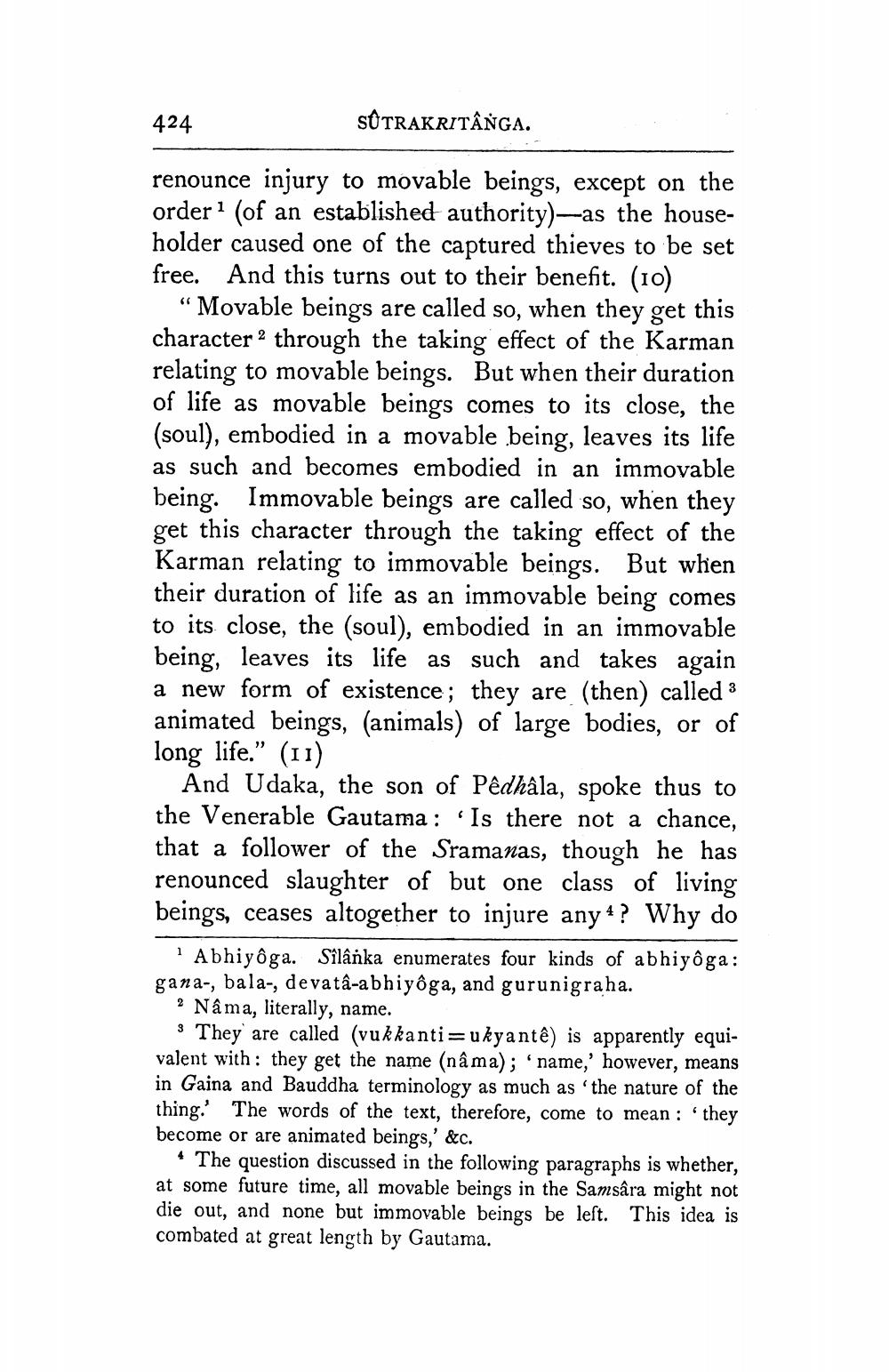________________
SUTRAKRITÂNGA.
renounce injury to movable beings, except on the order1 (of an established authority)-as the householder caused one of the captured thieves to be set free. And this turns out to their benefit. (10)
66
'Movable beings are called so, when they get this character 2 through the taking effect of the Karman relating to movable beings. But when their duration of life as movable beings comes to its close, the (soul), embodied in a movable being, leaves its life as such and becomes embodied in an immovable being. Immovable beings are called so, when they get this character through the taking effect of the Karman relating to immovable beings. But when their duration of life as an immovable being comes to its close, the (soul), embodied in an immovable being, leaves its life as such and takes again a new form of existence; they are (then) called 3 animated beings, (animals) of large bodies, or of long life." (11)
?
And Udaka, the son of Pêdhâla, spoke thus to the Venerable Gautama: Is there not a chance, that a follower of the Sramanas, though he has renounced slaughter of but one class of living beings, ceases altogether to injure any? Why do
424
Abhiyôga. Silânka enumerates four kinds of abhiyôga: gana-, bala-, devatâ-abhiyôga, and gurunigraha.
2 Nâma, literally, name.
9 They are called (vukkanti-ukyantê) is apparently equivalent with they get the name (nâma); 'name,' however, means in Gaina and Bauddha terminology as much as 'the nature of the thing. The words of the text, therefore, come to mean: 'they become or are animated beings,' &c.
The question discussed in the following paragraphs is whether, at some future time, all movable beings in the Samsâra might not die out, and none but immovable beings be left. This idea is combated at great length by Gautama.




